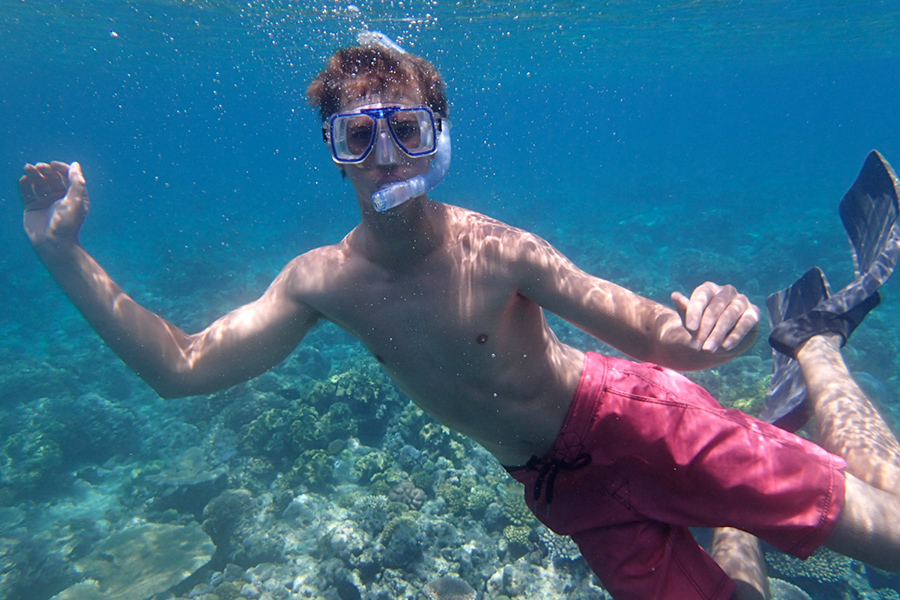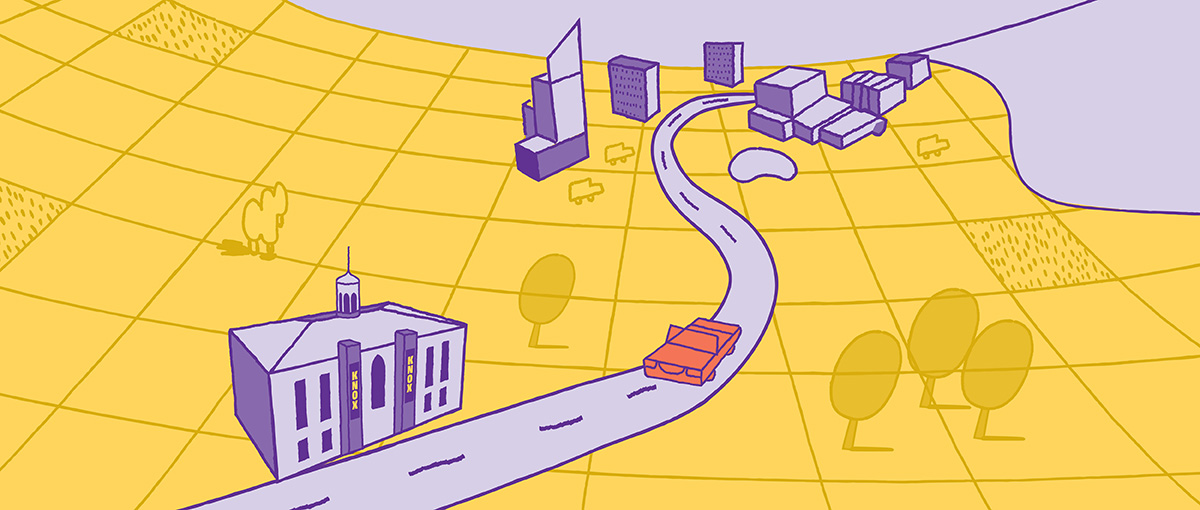

International Spotlight: Michael Belitz in Australia
Michael Belitz, a Knox College junior from Sheboygan, Wisconsin, studied abroad in Australia during the fall through The School for Field Studies' Rainforest Studies program. He studied wildlife in the rainforest and off the coast, and he collected data for an independent research project. He is majoring in environmental studies and biology.
How do you think this study abroad experience will benefit you in terms of your education, future career plans, personal development, etc.?
Being a biology and environmental studies double-major, learning about rainforest conservation and management while abroad greatly improves my mindset as an environmentalist.
By living in the rainforest for three months, my ability to live on minimal resources improved. Finally, because the program was based around fieldwork, I learned a lot about how to safely and successfully prepare, conduct, and write scientific articles.
This may prove to be extremely beneficial to my career path, as I am interested in becoming a professor and conducting scientific research.
How did you learn about this opportunity?
I learned about The School for Field Studies (SFS) in general from a poster that was hanging up in the biology wing of SMC (the Umbeck Science-Mathematics Center). Then, I searched the SFS website and became very interested in the programs. My advisor, Katie Adelsberger, played a role in encouraging me that studying abroad would be an investment of a lifetime.
What inspired you to pursue study abroad in general, and why did you decide to pursue this particular program or country for your study abroad experience?
I was inspired to study abroad because I wanted to get the experience of a hands-on learning environment for an extended period of time. I particularly chose the SFS Rainforest Studies program because I was interested in a career in fieldwork, but I wanted to get a better grasp on my interest level. By participating in this program, I was able to conduct my own month-long directed research project.
Can you cite an example of how your in-classroom and/or out-of-the-classroom experiences at Knox have benefited you as you studied abroad and traveled internationally?
By taking Introduction to Research (Biology 120), I conducted many small research projects and wrote numerous small scientific papers. Due to this, I was familiar with scientific writing, biology statistics, and poster presentations. This was highly beneficial, as all were skills that I already was introduced to, and I was able to enhance my skills while abroad.
Describe your day-to-day experiences.
I would wake up every morning around 7:15 a.m. and hike from my cabin, where I was living with seven other guys, to the main center to make breakfast, usually consisting of eggs and toast. Then, I would attend classes from 8:30 until noon, in which we would break for lunch.
Our after-lunch activities usually consisted of field lectures, in which we would hike around the center property to learn about what we were learning about in class, or we would leave the property to learn about these particular things. Some field lectures included learning about the geology of the area, learning about how to identify types of rainforest, and learning about how to create successful corridors between rainforest fragments.
Then around 5:30 p.m., it would be dinnertime, which was prepared by our fantastic cook. After dinner, I would study and do homework, exercise, and go on spotlighting night hikes.
It was on these spotlighting hikes that seeing pythons, pademelons (small rainforest kangaroos), and echidnas was more likely. For the final month of the program, we split into our directed research groups and for two weeks spent eight hours a day in the field collecting data.
For me, this meant making 50-meter transect lines in dense rainforest and then crawling around the rainforest floor measuring and identifying seedlings, as my directed research was on the effects of weed-invasion on the seedling composition of second-growth forests.
What was the best/coolest part of studying abroad?
This question has been one of the hardest questions to answer since arriving back on campus, because my experience abroad had so many fantastic parts to it. One of the coolest parts about my study abroad experience was waking up every morning to the numerous birds that would be calling.
Another great part about this study abroad experience is that I was able to see multiple landscapes of Australia, as we went to the edge of the outback for a three-day class trip, in which I saw numerous kangaroos and wallabies, and I was able to snorkel and scuba dive the Great Barrier Reef during mid-semester break. During this trip, I saw countless different species of sea life, including dolphins, sea turtles, reef sharks, and clown fish.
I also enjoyed how when I came to Australia, due to my inexperience around snakes, I was uncomfortable around them; however, after experiencing snakes on a semi-regular basis, my comfort around them has vastly improved.
What did you learn?
During my study abroad experience, I learned about myself, the environment, and how to become a better scientist. I was able to live more sustainably than ever before, while learning a great deal about research strategies. This experience was one that I will always remember.
Published on January 18, 2013

